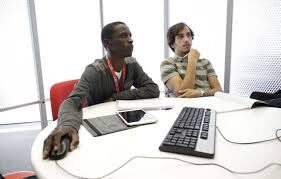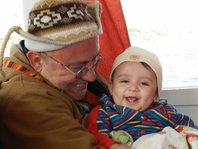 I ask for admission to your program to pursue the PHD Degree in Communication and Information, with a focus on Library Science, because I am convinced that doing so will inspire me to meet my long term career and professional goals. I want to devote the balance of my life to the advancement of living museums and I am very excited about the increasing amount of research that is taking place now in your department in this area. I have also currently been taking a research intensive course, “Course Title,” which was recommended to me by Professor XXXX, so as to gain greater research experience in the hope of being admitted to your doctoral program.
I ask for admission to your program to pursue the PHD Degree in Communication and Information, with a focus on Library Science, because I am convinced that doing so will inspire me to meet my long term career and professional goals. I want to devote the balance of my life to the advancement of living museums and I am very excited about the increasing amount of research that is taking place now in your department in this area. I have also currently been taking a research intensive course, “Course Title,” which was recommended to me by Professor XXXX, so as to gain greater research experience in the hope of being admitted to your doctoral program.
I would like to focus my doctoral research on the voices of women in community throughout United States history, the unique ways in which American female voices have been influenced by the nature of the given writer’s community, as expressed in newspaper articles, non-fiction, novels, poems, journals, even recipes. I want to argue that there is a tendency among female writers to express their community bonds in special ways that are not typically shared by their male counterparts. In fact, I want to explore the hypothesis that a unique, symbiotic relationship tends to arise between women writers and their communities, resulting in unique patterns of contribution to the community in which women have tended to distinguish themselves. This research will draw on work that has been done in psychology that suggests that women tend to see the world quite differently than do men, who generally tend more towards more rugged individualism, as opposed to the complex social web in which the woman almost invariably tends to locate herself. Of course, this is a broad subject area; nevertheless, this is also an area of academic inquiry where one can find ample material for investigation. My work would be distinguished by its emphasis on regionalism, exploring community motifs as they are voiced by women across generations, but in the same regional or geographical context in the USA. In short, I would like to explore the ways in which changes in the voices of women are mirrored by, or probably better put spring from, the evolving structures of society, particularly the role of women,
The greatest contribution that I might be able to make to society would be to help inspire future generations of students through the development of library collections of women writers group according to epoch and geographical region. I feel strongly that it would be beneficial to create collections with a regional basis, comparing the female voices of that region over time, observing the way that new motifs in women’s concerns tend to mirror changes in community structures and concerns. My long term goal is to dedicate myself to the maintenance and preservation of collections of artifacts and writings at a (probably regional) living history museum.
I date my interest in library and museum science to my early childhood playing in our attic amidst the old books filled with intricate etching and engravings. My sisters and I would arrange the mini balls arrayed in line and dress up in authentic Civil War costumes complete with hoop skirts and satin gowns. My childhood curiosity led me to wonder to whom these books once belonged; what was the house like where these curtains once hung? Surrounded by artifacts and memorabilia of bygone eras, a seed was planted in me that has nurtured a love for history ever since and I feel most at home in the world of antiquities.
For me the preservation of literature and historical record is a noble cause that springs to life as a result of our field, since we are the people on the cutting edge of finding new ways for new generations to more effectively access historical material in increasingly creative ways. Pursing a Ph.D. at Kent State University will enable me to devote myself full time to research in the rich history of artistic creativity and community expression found in the voices of women. Your Master’s Program in Library and Information Science program at Kent State has prepared me for the rigors of my current position as the District Librarian for the North Olmsted City Schools. I have come a long way to mastering the art of collection development, equipment management, differentiated instruction, media literacy, and staff management, all of fundamental importance to the orchestration of a district library. I feel strongly that this experience has also helped to prepare me for doctoral studies.
I come from a family of five children and meager means; nevertheless, our upbringing was very culturally and artistically rich in multicultural experience. My dad was a school teacher and my mom was a nurse who worked at home. We even developed a summer musical production performed exclusively by my family- complete with homemade life size scenery, music sung in three-part harmony and homemade refreshments for all after the performance, right in our backyard with not an inch of space for another folding chair. And we hosted many a cohort of exchange students from various cultures. People young and old from all walks of life beckoned through the portals of our home. It was not unusual to have visitors from Communist Romania or far-away Irian Jaya. Closer to home, lumberjacks of Newfoundland and homeless inner-city men from New York City would share our table. The Lithuanian neighbor came over frequently with her kolotchke cookies to share with a cup of tea, while several streets away offered a clan of Italian aunts, uncles and cousins. This eclectic mix of various ethnicities and cultures enabled me to develop a profound appreciation of diversity. Going to France as an exchange student in high school helped reinforce my multicultural world view. I also home schooled five boys until the 8th grade, studying a kaleidoscope of cultures.
I profoundly appreciate the importance of feminism to our public discourse. As a historian, a librarian, and a woman, however, I am most interested in the contributions of women who were at home, on the farm, struggling to keep a family alive rather than debating in the public square. I am most passionate about the importance of the recovery and preservation of the female voices in our histories, especially for future generations of women that can learn from and celebrate these histories, thereby coming to a better understanding of themselves.

